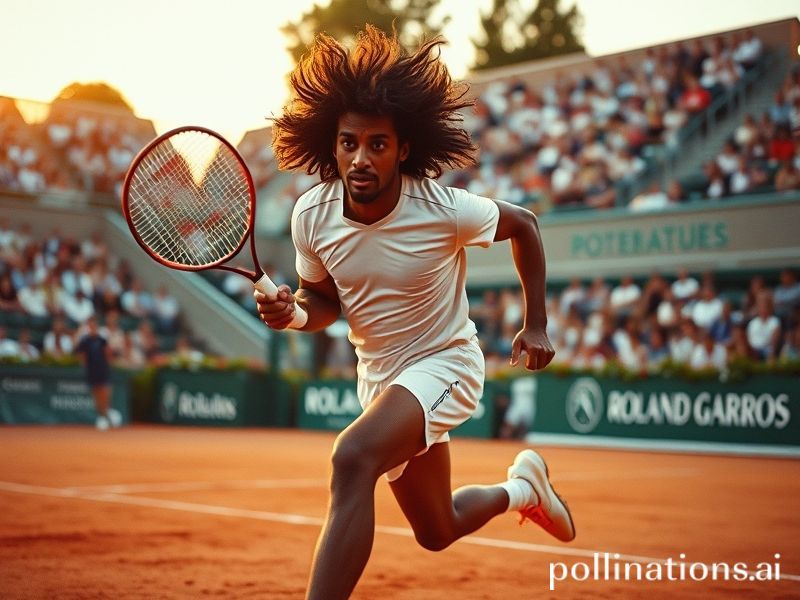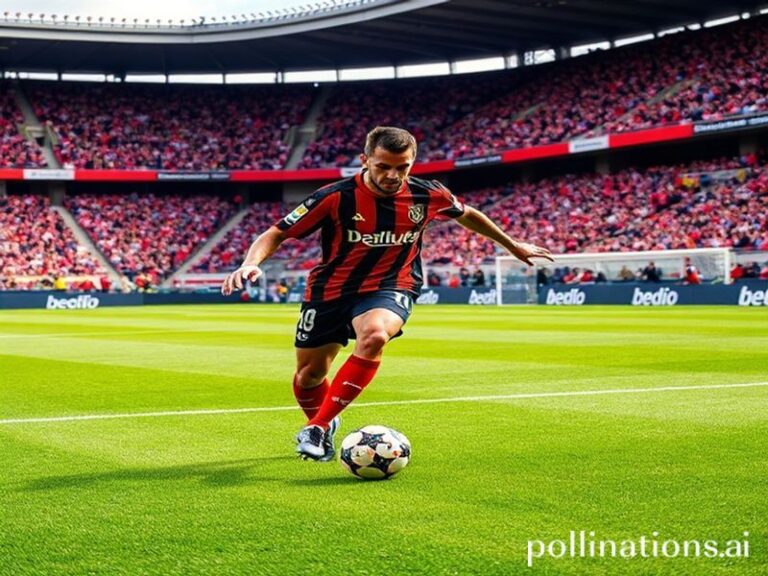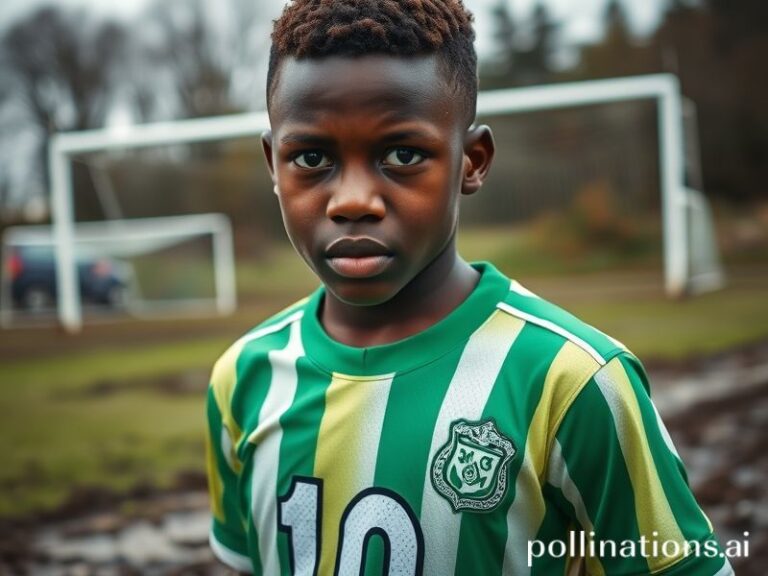Yannick Noah: The Last French Export Who Sings Louder Than the World Burns
Yannick Noah: The Last Frenchman Who Could Still Make a Stadium Sing Without Setting It on Fire
By Dave’s International Cynic-in-Residence
Paris, France – In an age when most former athletes monetise nostalgia by hawking NFTs or launching their own line of artisanal beard oil, Yannick Noah remains a stubborn anomaly: a one-time tennis champion who somehow got promoted to national lullaby-singer and moral fig-leaf for an entire republic. Walk past any café terrace from Marseille to Montmartre at sunset and there is roughly a 73 % chance the house speakers will be leaking his gravel-voiced reggae-lite ballads, the sonic equivalent of a shrug that says, “Sure, the planet is melting, but have you tried rosé?”
Noah’s career arc is the sort of plot twist that would get laughed out of a Netflix writers’ room for implausibility. Born in Sedan in 1960 to a Cameroonian footballer father and French mother, he grew up under the long shadow of colonial baggage—useful, as it turned out, for swinging a tennis racket like he was clearing historical debt. In 1983 he became the last Frenchman to win Roland-Garros, a feat the nation has since turned into a kind of sporting Holy Grail quest, involving increasingly ritualistic sacrifices of young talents on red clay altars. Every June, television commentators intone his name the way monks chant dead popes: “Yannick, pray for us sinners, now and at the hour of our quarter-finals.”
Internationally, the victory was treated as a charming footnote—Europe’s polite applause, America’s confused Google search. But in France it performed a minor miracle: for roughly two weeks, nobody argued about immigration. A biracial man with an Afro the size of a nuclear mushroom cloud hoisted the Coupe des Mousquetaires, and xenophobes discovered selective amnesia. “He’s one of the good ones,” they muttered, which is nationalist for “we will tolerate your existence as long as you keep winning.”
Yet Noah refused to stick to the script. Instead of milking endorsements or shilling for luxury watches, he did something far more radical: he picked up a guitar. By the mid-90s he had transfigured himself into France’s biggest pop export since Serge Gainsbourg—only with fewer cigarettes and more socially acceptable dreadlocks. His band, “Zion & Lenny,” sold out stadiums from Dakar to Dubai, peddling sun-drenched reggae that sounded like the IMF had never existed. Critics sniffed at the simplistic lyrics; fans countered that in a country allergic to melody since 1789, simplicity was revolutionary.
The global implications? Consider this: while other nations export fighter jets or microchips, France exports Yannick Noah concerts—soft power disguised as beach-bar background music. French diplomats quietly admit that a well-timed Noah tour can cool tempers in former colonies faster than a five-point aid package. When Burkina Faso threatened to boot French troops last year, the Élysée floated the possibility of a free Noah gig in Ouagadougou. Sources say the junta paused, visibly swayed by the prospect of 50,000 citizens swaying to “Aux arbres citoyens.” Realpolitik has rarely sounded so groovy.
Of course, no icon survives the 21st-century unscathed. Activists point out that Noah’s carbon footprint now rivals a budget airline, what with globe-trotting tours and a side gig coaching the French Davis Cup team to sporadic glory. Social-media sleuths dredge up decades-old interviews where he praised Fidel Castro’s health-care system—heresy in the Twitter tribunal. But the French shrug, genetically immune to scandal when accordion chords are involved.
Meanwhile, the rest of the planet has begun outsourcing its own crises to Noah’s playlist. In São Paulo, eco-protesters blast “Redemption Song” while police deploy tear gas; in Athens, austerity marchers repurpose “Simon Papa” as an anti-banker chant. It turns out that reggae with a French passport is the Esperanto of mild dissent—revolutionary enough to feel dangerous, catchy enough to ignore the bar tab.
As another Roland-Garros fortnight looms, bookmakers give the French men’s squad roughly the same odds as the euro surviving 2025. Commentators will once again invoke Noah’s ghostly forehand, commentators who were in diapers when he lifted the trophy. And somewhere in the players’ lounge, a 63-year-old man with laugh lines deep as clay-court trenches will tune a guitar, knowing that if all else fails, France can still win the music break.
Conclusion: Yannick Noah is not merely a retired athlete or a pop relic; he is France’s renewable resource of national self-esteem, a perpetual motion machine powered by nostalgia and minor chords. In a world busy auctioning off its future to the highest bidder, he offers a simpler transaction: three minutes of melody for one fleeting illusion that everything might, somehow, be alright. The stadium lights dim, the first guitar strum rises, and for the length of a chorus, nobody checks their phone for apocalypse updates. In 2024, that passes for foreign aid.







